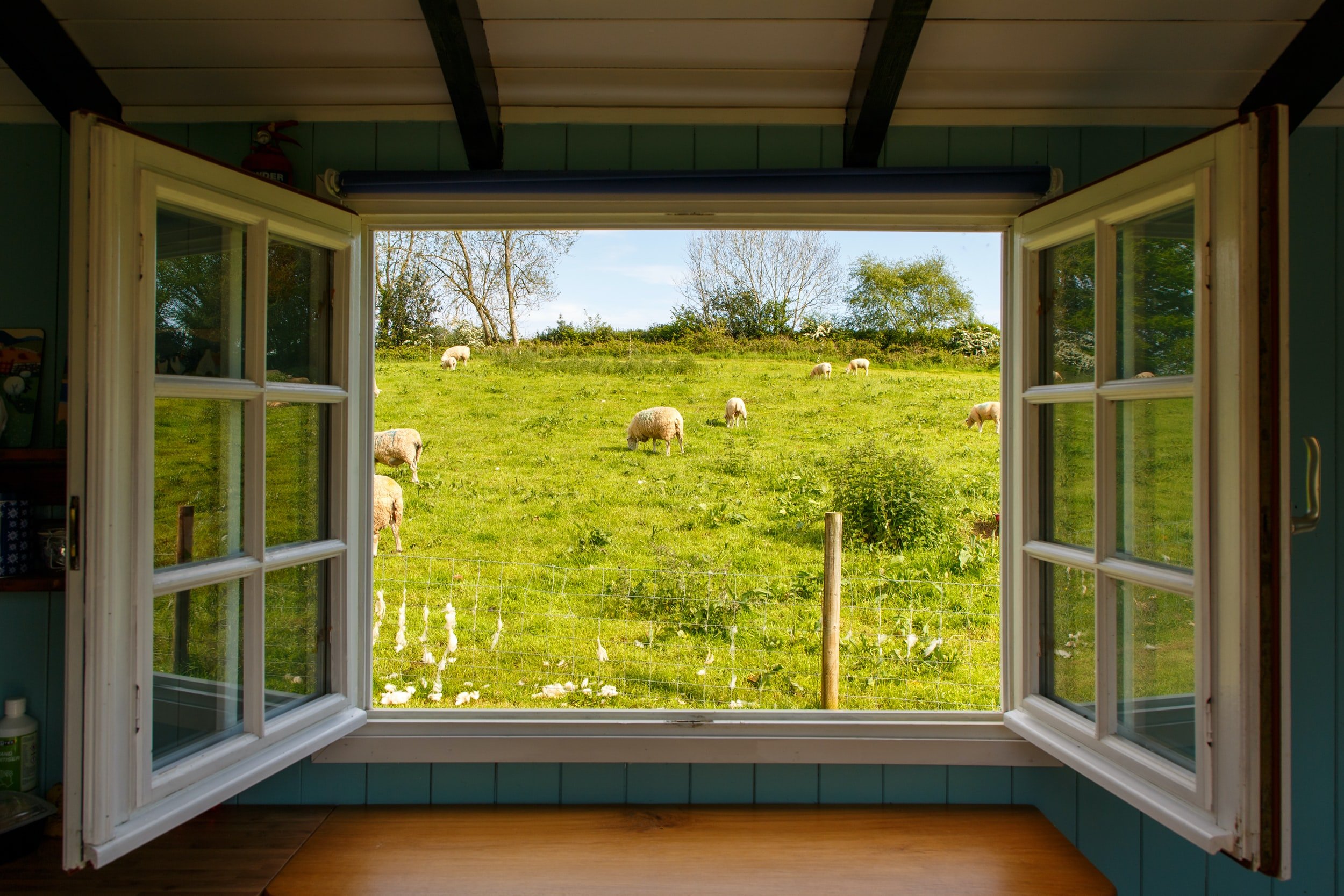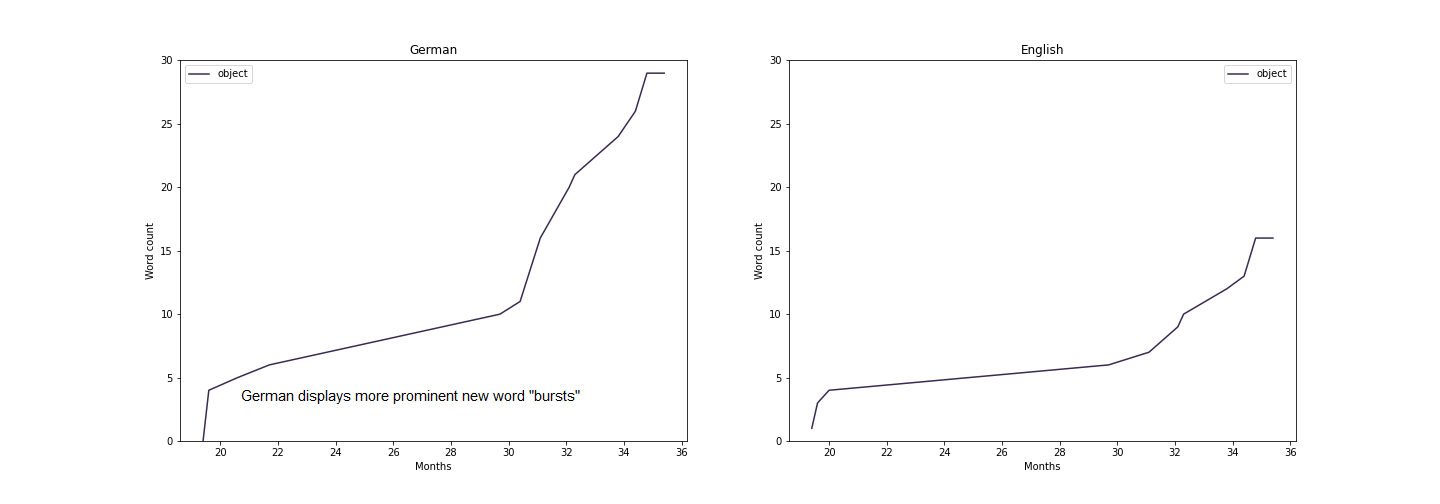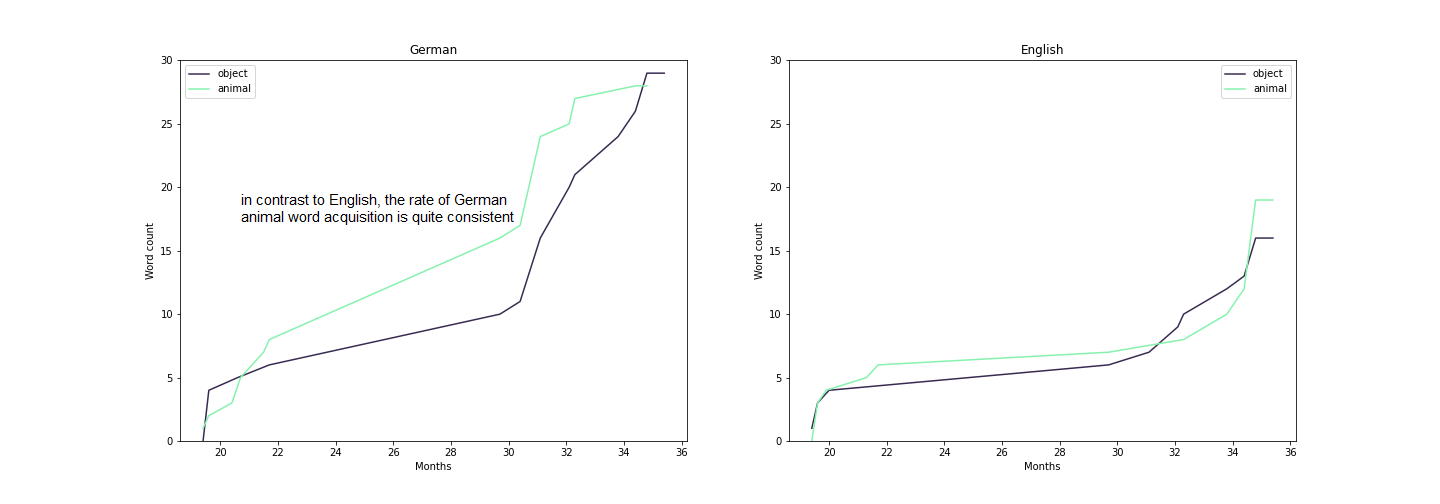Bilingualism: A Case Study
Is it possible for a child to have two mother tongues?
Olivia is a child with multinational parents, growing up in Germany.
From birth, each parent speaks to her exclusively in their own mother tongue.
Olvia speaks her first word at 19 months.
Despite starting off on equal footing, German quickly overtakes the English vocabulary
At 20 months, Olivia knows about 8 words in each language.
Two weeks later, a significant gap has developed between English and German.
But this gap isn’t reflected equally across word categories.

There is an explosion of new nouns in both languages around 21 months old.
This time period corresponds to Kindergartens closing at the beginning of the COVID-19 pandemic.
Coincidence?

At 3 years old, Olivia’s German verbs out number her English verbs 3:1.
This is partially due to a burst in German vocabulary that comes at 2 and a half years.

At 3 years, German prepositions outnumber English prepositions 4:1.
This may be due to the fact that German tends to attach prepositions to base verbs to create new words.
An example:

-
machen
to make/do
-
auf
on
-
aufmachen
to open
This feature of German gives a new dimension to prepositions and may make them more relevant to a child.

Until 32 months, English is on similar footing to German when it comes to learning adjectives.
However, she doesn’t know many adjectives in either language.

It makes sense that exclamations are similarly represented in both languages.
Imagine a toddler memorizing a word based on context without understanding its meaning.
It may be easier for Olivia to simply repeat something she has heard multiples times, rather than to map it on to a definition.
What sorts of nouns does Olivia tend to learn?

Not surprisingly, the noun category of “object” is the most common.
This is because it tends to collect the nouns that don’t fit into other catgories.
The most common object subcategories include vehicles, plants, and toys.

Olivia learns animals more quickly and consistently than any other word type.
Olivia even knows more animal words than verbs, and their representation between languages is almost equal.
She acquires them more steadliy in German, while the English curve seems to indicate bursts of word acquisition.

Numbers are a special noun class, which by their nature tend to be aquired in bursts.
At 3 years old, Olivia can almost count to twenty in both languages.

The “body” category includes any noun that refers to clothing, the body itself, and accessories such as pacifier.
Olivia has a strong tendency to learn these words in German.

The trajectory of “food” words follows “body” words closely, except that bursts of new German vocabulary are less pronounced.

The remaining word categories have much lower representation in Olivia’s vocabulary.
Abstract words such as music are classified as “other”.
What do we learn from all this?
65% of Olivia’s vocabulary at 3 years old consists of nouns.
Within her English vocabulary, Olivia learns a particularly high proportion of nouns, adjectives, and especially exlamatory words and phrases.
There is evidence that media has contributed to the aquisition of nouns.
Paticularly regrading animal words, the words Olivia knows in English tend to overlap with the English reading material and television programming she is exposed to.
In addition, the period in which Olivia experiences an initial rapid expansion of her vocabulary corresponds to a period when schools were closed during the 2020 COVID outbreak. During this period, Olivia had her highest and most frequent exposure to these types of media.
Media seems to be important particularly for English, because it is one of only two channels through which Olivia is exposed to the English language.
It’s important not to draw conclusions from this circumstance alone. However, it would be useful to view the progress of the vocubularies of other children in her age group during the same period, to clarify the effect the pandemic had on children’s speaking patterns.
If it is the case that Olivia more easily learns nouns from media than verbs, this may be because verbs are more easily acquired when they are in reference to herself.
Mapping a word onto a colorful, animate being is less abstract than mapping a word onto an action, particularly if the action can’t be visualized.
Most of the time Olivia is exposed to verbs in reference to an action she is performing or seeing a friend perform, the German language is being used. This may explain why a higher proportion of verbs she knows are German.


